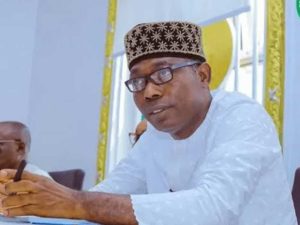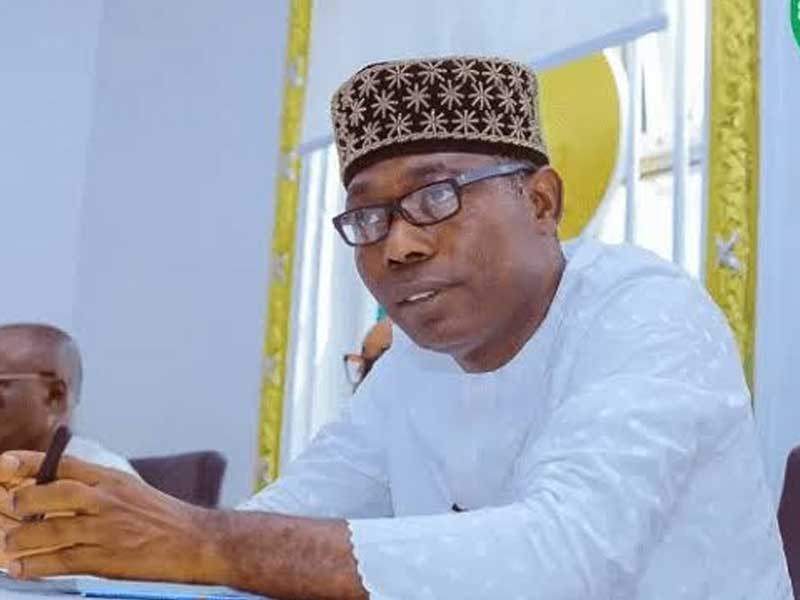
By Adeyemi Adekunle
The issue of illegal mining, which has been silently wreaking havoc on Nigeria’s economy for decades, has been brought to the forefront once again, thanks to the candid revelations of Prince Adewole Adebayo, the Social Democratic Party (SDP) presidential candidate in the 2023 elections.
Adebayo, speaking during an appearance on Channels Television’s Politics Today program on Sunday, painted a grim picture of the devastating financial impact of illegal mining operations in the country, which, according to him, have already outpaced the national budget.
Adebayo’s comments followed a worrying revelation by Jonathan Gbefwi, the Chairman of the House of Representatives Committee on Solid Minerals, who estimated that illegal mining costs Nigeria about $9 billion annually. This colossal amount, he noted, constitutes a major drain on the nation’s economy, with licensed miners contributing only a paltry 3% of the royalties due to the government, fueling concerns of widespread revenue loss.
The problem, according to Adebayo, is particularly acute in areas like Zamfara State, where illegal mining has flourished unchecked in local government areas such as Bukkuyum and Anka.
For the past two decades, these areas have become hotbeds of illegal mining activities, which not only rob Nigeria of billions of dollars in potential revenue but also contribute to environmental degradation and security issues.
Adebayo lamented the continuous lack of significant action from the government to address the challenge. “The country is hemorrhaging from losses in the solid minerals sector,” he remarked, adding that, in spite of the public knowledge of illegal mining’s pervasive reach, no substantial effort has been made to curb the tide of illicit activities. The absence of a robust framework for the enforcement of mining laws has enabled the illegal sector to thrive unchecked.
The former presidential candidate also called out government officials, particularly the Minister of Solid Minerals, Dele Alake, for their silence on the critical issue of illegal mining and its impact on national revenue generation.
“Where is the transparency? What is the government doing to stem this bleeding of our resources?” Adebayo questioned, urging the Nigerian government to take immediate, effective action to reclaim lost revenue from the solid minerals sector.
He emphasized the urgency of tackling the issue head-on, especially since the amount being stolen through illegal mining activities across various states, such as Zamfara, Osun, Ebonyi, and Nasarawa, has already surpassed the total national budget.
The losses to the Nigerian economy, according to Adebayo, are staggering. Not only does illegal mining deplete Nigeria of vital mineral resources, but it also fuels crime, corruption, and political instability.
Many of the regions affected by illegal mining face the added challenge of increased violence, as armed groups and criminals take advantage of the unregulated environment to engage in kidnapping, extortion, and other illegal activities.
The situation is exacerbated by the poor implementation of policies designed to safeguard natural resources, with a significant portion of the proceeds from legal mining operations failing to reach the government treasury due to corruption and weak enforcement mechanisms.
The rise of illegal mining has revealed serious systemic flaws within the governance structures responsible for managing Nigeria’s mineral wealth.
As Adebayo pointed out, while the federal government continues to make efforts on various fronts, including reforming other sectors, the mining industry’s vast potential remains unexploited, and its detrimental consequences are not being sufficiently addressed.
Adebayo’s remarks call for urgent government intervention and highlight the importance of reforming the mining sector to protect the nation’s interests.
A comprehensive approach, he urged, would involve both stricter regulatory oversight to prevent illegal mining and initiatives to ensure that legal miners meet their tax and royalty obligations. Adebayo also called for the empowerment of local and state governments to tackle illegal mining, emphasizing that unless the problem is rooted out at its source, Nigeria will continue to lose enormous sums of revenue each year.
With illegal mining continuing to ravage the country’s natural resources and prevent the government from fully benefiting from the minerals in its territory, Adebayo’s calls for accountability and immediate action have resonated loudly, sending a powerful message that it is time for a definitive, forceful response to stop the hemorrhaging of Nigeria’s wealth.




